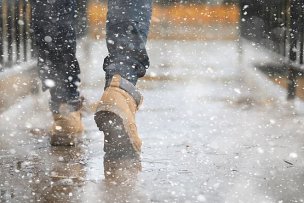Soon may be the winter of our discontent
Yes ‘winter is coming’ and according to some it’s not looking good. And no, we’re not talking about the thought of yet another General Election looming and casting a vote in the cold and dark!
Meteorologists at Exacta Weather are predicting the coldest winter in 50 years. However, not everyone agrees, with the Met Office saying winter weather is notoriously hard to predict. So as usual, no one is really sure what the future holds.
But what we do know is that winter can bring a set of property hazards, which from an insurance perspective, is always good to alert policyholders to in advance. So, what are our winter risk management tips to keep the property claims away this year?
Be prepared
- Ensure you know the layout and routes of all water, gas and electricity services within the premises and that this information is recorded and available
- Know the location of all main and subsidiary isolation-valves and ensure they are fully operational – regular exercising of the valves will ensure easier isolation
- Research the details of reliable local plumbing contractors and keep their contact details available
Prevent burst pipes (before anything happens)
- Protect pipes and tanks with good quality lagging to BS6700
- Repair dripping taps & faulty ball valves as they can cause waste pipes to freeze
- For unoccupied buildings or those with a history of freezing incidents, leave the heating set at a low level, or drain all equipment that is susceptible to condensation or freezing
- Install a frost stat set at a minimum of 4ᵒC to central heating and check it is working correctly
- Arrange for the premises to be inspected at least daily in periods of very cold weather
- Service heating systems at least annually
- Ensure all boilers are safeguarded against freezing – particularly drain and condensate lines. Drain down all idle boilers
Minimise damage (should anything happen)
- Isolate water at stop cock. Turn on cold taps to drain the system as quickly as possible.
- Turn off the central heating
- Protect or remove any vulnerable contents or equipment that may be damaged.
- Never use naked flames to thaw ice plugged pipes and equipment
- ‘Ice dams’ can be created on the edges of roofs, especially tiled roofs by the continual thawing and refreezing of melting snow. Water may ‘back up’ up the roof getting under the tiles and leaking into the building. To help prevent this keep drains open and free of ice in a safe manner. Engage specialist companies to perform this if necessary
- Monitor the amount of snow on roofs and arrange for it to be cleared before accumulations reach unsafe levels
Sprinkler systems
- For all sprinkler systems engage sprinkler contractors to make systems ‘winter safe’
- Especially vulnerable are systems protecting outdoor areas or cold areas (attics etc), valve chambers, and pump rooms
- Heating should be maintained at all times at or above 4 degrees C. Exposed pipe work should be trace heated and lagged, and this must be routinely inspected and maintained
